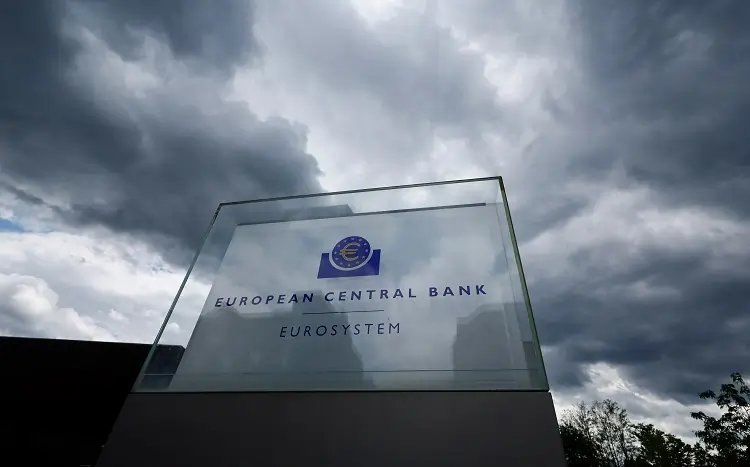For Europe’s markets, Trump’s return spells euro pain but bond gains


By Yoruk Bahceli and Lucy Raitano
LONDON (Reuters) -Investors are bracing for further economic pain in Europe that could deepen euro losses and hurt its stocks, as a second Donald Trump presidency raises the prospects of hefty tariffs.
European bonds emerged as winners, as expectations the European Central Bank will cut interest rates to counter an economic slowdown rose. But bets were generally contained as investors assess which of Trump’s pledges will be implemented following his election victory on Wednesday.
The stakes are high for a region that has navigated the pandemic, war in Ukraine and global trade tensions in recent years and comes at a time of political uncertainty in France and Germany. Chancellor Olaf Scholz sacked Finance Minister Christian Lindner late on Wednesday, leaving the future of the German government unclear in Europe’s biggest economy.
Trump has vowed a 10% tariff on imports from all countries, a big blow for the European Union which has the second-largest trade deficit with the United States globally and is the largest exporter to the U.S, according to JPMorgan.
The EU faces more pain through its close ties with China, on whose imports Trump has pledged 60% tariffs, and may need to boost defence spending if Trump pulls U.S. support for Ukraine.
As traders raised ECB rate cut bets, shorter-dated German bond yields slid as prices surged. Longer-dated peers resisted a jump in U.S. Treasury yields.
The bond market in Europe has responded by saying we should see lower growth, which can be offset by rate cuts from the ECB, but it’s not going to be aggressive enough that it’s going to push us into a nasty recession,” said AXA Investment Managers‘ head of total return and fixed income Nick Hayes, who favours European bonds.
The mood was initially brighter in European stock markets, which rose reflecting a surge in U.S. peers and relief that the result became clear quickly. But they cut their gains and were last down 0.6% in late European trade.
“The certainty is that he’s back, the uncertainty is what he’s going to do,” said Hayes.
In a clear sign of unease, the euro had plunged around 2% against the dollar and was set for its biggest daily drop since the height of the 2020 COVID crisis.
JPMorgan, ING and ABN AMRO reckon a drop to parity could be repeated under a Trump presidency depending on the extent of tariffs, as well as tax cuts that could fuel U.S. inflation and limit U.S. Federal Reserve rate cuts.
What comes next depends on the extent and pace of tariffs and tax cuts, how much they reignite U.S. inflation, and the countermeasures Europe and China take, investors said.
Whether Trump’s Republicans take control of Congress will determine how much of his agenda he can implement.
For now, traders expect around 130 bps of cuts by end-2025, versus around 120 priced in on Tuesday.
Goldman Sachs said on Wednesday it expects more limited tariffs on Europe, foreseeing a 0.5% hit to euro zone output.
The euro, while sharply lower at around $1.07, is far from the parity level it last breached during 2022’s energy crisis. Deutsche Bank expects it to fall to $1.05 by year-end.
Yes, tariffs are a big concern, but you have to put against that what relative growth is going to do,” said Arun Sai, senior multi asset strategist at Pictet Asset Management, betting on euro zone growth stabilising while U.S. growth slows.
Sai, whose firm dropped a bet against the euro in recent days, said he did not expect Trump to carry out all his tariff pledges immediately.
Federico Cesarini, head of developed markets FX at the Amundi Investment Institute, said traders would have to completely price out Fed rate cuts to push the euro to parity.
Traders still expect a Fed rate cut on Thursday and over 100 bps of easing by the end of 2025.
While their rally lost steam, Europe’s equity markets saw a key volatility tracker on track for its biggest daily drop in seven weeks.
Defence and aerospace stocks outperformed, up 2% each, helped by expectations that Europe will have to step up defence spending.
Hani Redha, multi-asset portfolio manager at PineBridge Investments, said Europe’s stock market reaction on Wednesday had to be seen “in the context of a pretty abysmal performance of European equities relative to pretty much every other region over the last three months.
A lot of bad news is already built into the price,” he added.
Any gains could be short-lived as the impact of Trump’s policies become clearer, investors said.
Renewables, at risk from Trump’s energy policies, fell sharply, as did auto stocks, expected to bear the brunt of potential new tariffs.
Denmark’s Orsted plunged over 12.7% while carmakers Porsche, BMW and Volkswagen fell 5.4%-7.7%.
“Europe is getting the worst of both worlds and this comes at a time when the economy is struggling,” said Seema Shah, chief strategist at Principal Asset Management, which is underweight European stocks.
(Reporting by Yoruk Bahceli and Lucy Raitano; additional reporting by Samuel Indyk an Dhara Ranasinghe; Editing by Dhara Ranasinghe, Catherine Evans and Rod Nickel)
The European Central Bank (ECB) is the central bank for the euro and administers monetary policy within the Eurozone, aiming to maintain price stability and oversee the financial system.
Inflation is the rate at which the general level of prices for goods and services rises, eroding purchasing power and affecting economic stability.
Economic growth refers to the increase in the production of goods and services in an economy over a period, typically measured by GDP.
Explore more articles in the Trading category











